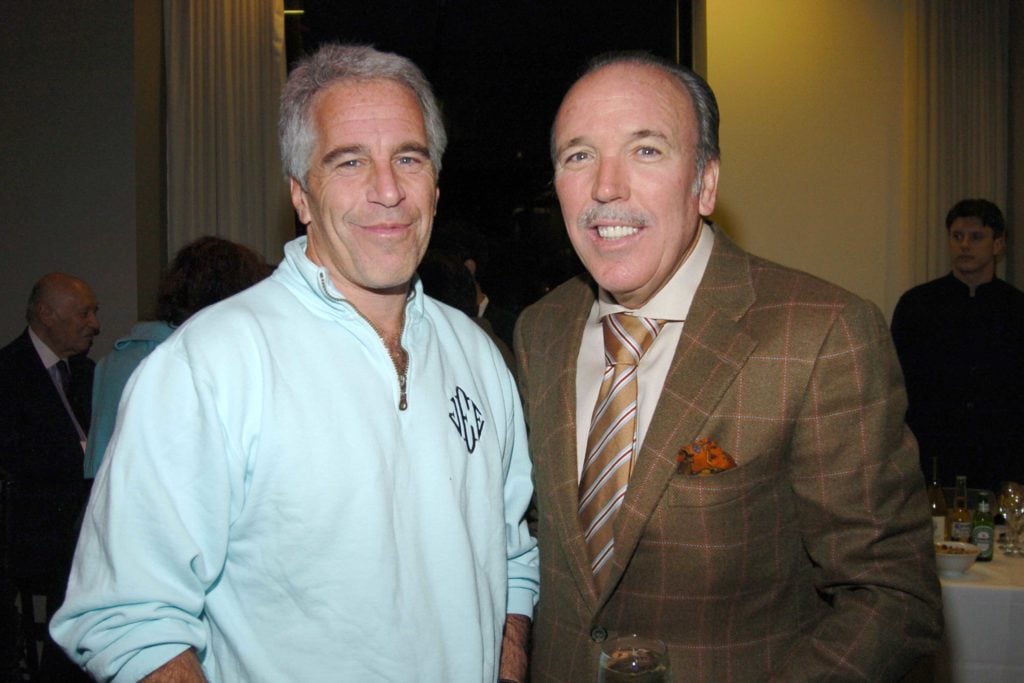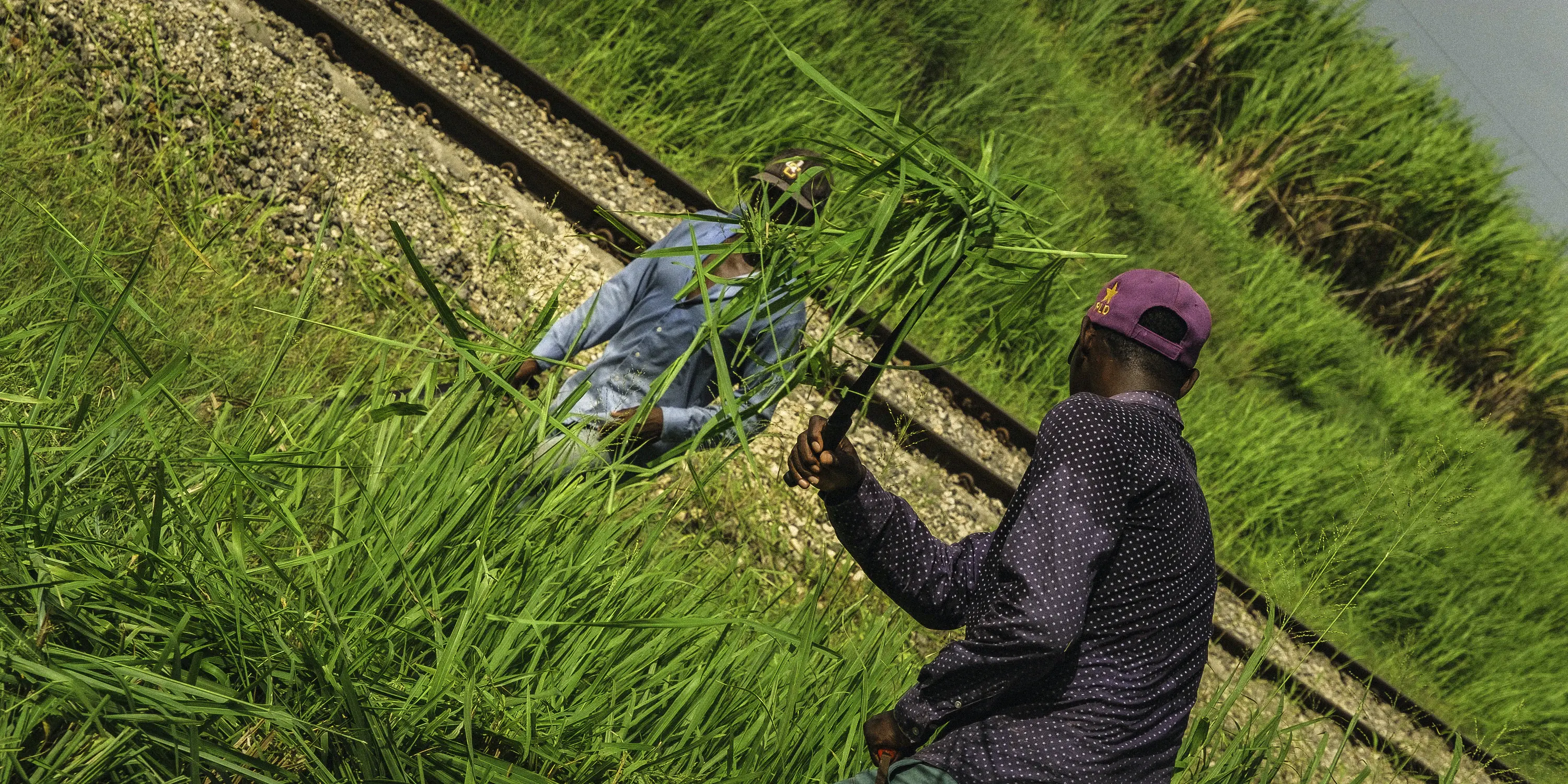Latin America
Related: About this forumFederal Agents Investigate Sugar Exporter Over Allegations of Forced Labor
OCTOBER 20, 2023
Authors:
Sandy Tolan
GRANTEE
Michael Montgomery
GRANTEE
The Americans pulling into the luxury Caribbean resort town of Juan Dolio could have easily passed as tourists. Dressed in jeans and tennis shoes, they set up at a hotel overlooking the Dominican Republic’s southern coast. But the group, which included law enforcement officers from the US Department of Homeland Security, wasn’t traveling to enjoy the area’s world-class golf courses and palm-studded white sand beaches.
Trained to target and dismantle terrorist groups and transnational drug cartels, the special agents from Homeland Security Investigations, or HSI, were probing something very different: working conditions at the Central Romana Corp., a major exporter of sugar to the United States, whose top executive is Alfonso Fanjul, a billionaire Florida businessman.
The agents spent days last March secretly interviewing Haitian cane cutters, who were shuttled to the hotel from Central Romana’s sprawling nearby 240,000-acre plantation, where many workers, along with their families, live in ramshackle camps known as bateyes.
In November, months before the HSI agents’ arrival, US Customs and Border Protection (CBP) blocked imports of Central Romana sugar—which averaged about a quarter-billion pounds a year—after finding evidence of forced labor among its Haitian cane cutters.
More:
https://pulitzercenter.org/stories/federal-agents-investigate-sugar-exporter-over-allegations-forced-labor

This generation of the sugar barons of Fanjul moved to Florida because of the revolution. They established themselves immediately as owners of a sugar plantation in Florida, and got in deep trouble after years of chicanery and lost a class action suit brought by the wildly abused workers.
The one on the left in the photo of Alfonso, Alfie, and the other is Pepe. Pepe always generously supports right-wing US politicians, and Alfie pays campaign contributions to Democrats.
Outstanding in their field. Right!

Look, ma! Inducted into the Florida Hall of Fame! Wow!


The involuntarily late Jeffrey Epstein and Pepe Fanjul
ETC.
Judi Lynn
(160,682 posts)by Amy Bracken @brackenamy July 23, 2015 5:00AM ET
The sugar barons of America, the Fanjul brothers, have a cozy relationship with the US government
- click link for image -
http://america.aljazeera.com/content/ajam/multimedia/2015/7/fanjul-family-benefits-political-donations/jcr:content/mainpar/adaptiveimage/src.adapt.960.high.dominican_republic_cane_michel2.1437766232249.jpg
Andrés Michel, 75, lost an eye cultivating cane meant for the sugar company Central Romana. He still works the fields.
This is the second story in a two-part series. Read the first story, about the working conditions of the cane cutters on Dominican sugar plantations violating labor law, here.
WASHINGTON — Charlotte Ponticelli used to work for the State Department, but when she describes a recent visit to sugarcane plantations in the Dominican Republic, she ditches the diplomat speak.
“What I saw made me sick,” she says of the laborers’ living conditions. “[The cane workers] were skeletons wearing rags. One old man told us, ‘We have no access to anything from our pensions.’ They had worked for 40 to 50 years, and nothing … I wanted to cry all the way home. I thought, ‘After … all this work, this is how these people live?’”
By “all this work,” Ponticelli means the United States Department of Labor’s push to improve conditions for cane workers in the DR, one of the top sugar exporters to the U.S. As part of the Dominican Republic-Central America Free Trade Agreement, or CAFTA-DR, which went into effect in the Caribbean nation in 2007, signatory countries were required to enforce their own labor laws. The deal was promoted as a tool to improve worker conditions — just as the Trans-Pacific Partnership agreement is being advertised now — but such promises are frequently broken. Four years into CAFTA-DR, an activist priest filed a complaint under the treaty about an alleged “laundry list” of abuses on Dominican sugar plantations, from work-hour and wage violations to unhygienic living conditions. Ponticelli, who previously headed the DOL’s Bureau of International Labor Affairs, facilitated meetings between Rev. Christopher Hartley and her old staff in Washington.
In 2013, after a two-year investigation, the department issued a report expressing concern that the Dominican government might be failing to protect sugar workers. The report was followed by three reviews, one every six months, that found working conditions still lacking. But as the DOL pushed for reform in Dominican sugar, members of Congress and other politicians maintained lucrative relationships with the royal family of cane: the Fanjuls.
More:
http://america.aljazeera.com/multimedia/2015/7/fanjul-family-benefits-political-donations.html
DURHAM D
(32,617 posts)What next - Katherine Harris files to run for Governor of Florida?
Call Al Gore.
Judi Lynn
(160,682 posts)Still in shock over that. They should all be in prison.
Judi Lynn
(160,682 posts)From one year ago:
OCTOBER 14, 2022
Paramilitary-Style Guards Instill Fear in Workers in Dominican Cane Fields
Country:
Authors:
Sandy Tolan
GRANTEE
Euclides Cordero Nuel
GUEST CONTRIBUTOR

Men work clearing sugar cane fields in Romana province, Dominican Republic, on Aug. 24, 2021. Image by Pedro Farias-Nardi. Dominican Republic.
One of the largest sugar suppliers to the U.S., Central Romana in the Dominican Republic, is coming under government scrutiny for labor practices.
ON A WARM, muggy morning in February 2021, masked men arrived at a dilapidated wooden shack in a remote Dominican Republic work camp without light or running water. Armed with 9-mm pistols and 12-gauge shotguns, and wearing masks to cover their faces, they were part of a private security force assembled by one of the largest exporters of sugar to the United States.
The armed force dismounted from their motorcycles and approached the tin-roof dwelling. It was the home of Flexi Bele, a Haitian sugarcane worker who had lived with his family in this distant corner of this Caribbean nation for decades. Now, he was facing a peril that many of his fellow cane cutters dreaded: The masked men, employed by the billion-dollar Central Romana Corporation, pounded on his door.
“They kicked me out of the batey,” said Bele, using the term for a sugarcane work camp in the Dominican Republic. After 40 years as a Central Romana cane cutter, Bele, 66 years old, had been told there was no more work for him. He was being laid off. “I worked, and worked, and worked, I gave them so much work.”
Bele lived in a camp known as Batey Lima, company housing owned by Central Romana. The armed men standing at his door had come to evict him.
More:
https://pulitzercenter.org/stories/paramilitary-style-guards-instill-fear-workers-dominican-cane-fields
(Years after I heard the name "Domino Sugar" until after seeing this article, I was unaware the name "Domino" refers to the Dominican Republic! Weird, isn't it?)